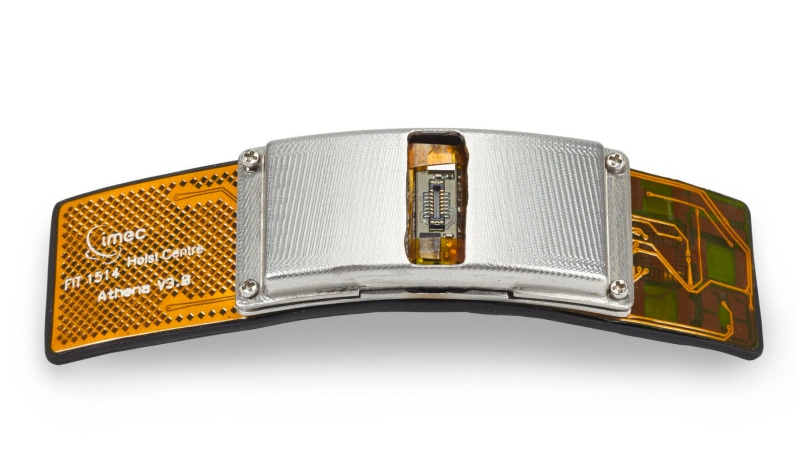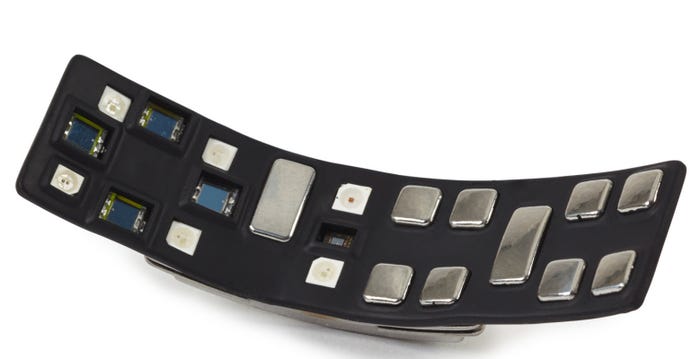Samsung Plans to Open Source Digital Health
This week Samsung put out a call to innovative startups to join it in creating the next-generation of wearable platforms for digital health. The company has announced a $50 million investment fund it is calling the Samsung Digital Health Challenge and wants to develop advanced data collection sensors and algorithms that will create actionable analysis of health tracking data. And it wants to use open hardware and software to do it. Essentially Samsung is creating a digital health playground and it wants startups, entrepreneurs, and research organizations to get into the sandbox.
May 29, 2014

This week Samsung put out a call to innovative startups to join it in creating the next-generation of wearable platforms for digital health. The company has announced a $50 million investment fund it is calling the Samsung Digital Health Challenge and wants to develop advanced data collection sensors and algorithms that will create actionable analysis of health tracking data. And it wants to use open hardware and software to do it. Essentially Samsung is creating a digital health playground and it wants startups, entrepreneurs, and research organizations to get into the sandbox.
The Simband will let developers build their own wearable health tracking device. |
On the hardware side Samsung's Strategy and Innovation Center (SSIC) has unveiled an open wearable platform (in a wrist-worn form factor of course) called the Simband. The Simband is a modular, open hardware reference design capable of integrating a variety of sensors—essentially letting developers build their own wearable device to track whatever health metrics they want. The Simband will also be capable of integrating new sensors built from scratch by partner companies. Samsung hopes its future partners will also expand the technology to different form factors as well.
On the software end, the Samsung Architecture for Multimodal Interactions (SAMI) will be a cloud-based open software platform capable of analyzing varied collected sensor data. Using this open platform, developers and researchers will have access to data collected not only by their individual projects, but from others' as well. The plan is to create a wide database of health data from which new algorithms for health tracking and analysis can be created.
So far Samsung has announced a partnership with imec, a Belgium-based microelectronics company that does nanoelectronics research. imec is creating optical sensors for the Simband that shine different frequencies of light on the skin for noninvasive pulse and blood oxygen measurements. Combining this method of pulse measurement with ECG sensors, an algorithm can extrapolate a user's pulse arrival time and turn it into a blood pressure measurement.
The MD&M East Conference will be hosting sessions on "A New Era of Consumerization, Usability, and Human Factors" June 12, 2014. |
Samsung and imec are also looking into bioimpedance, the body's response to an external electric current, and have developed wrist-worn bioimpedance sensors for continuous heart rate monitoring as well as blood flow, respiration, and hydration.
|
The Simband will be an open, modular system capable of accepting a variety of different sensors. |
Samsung has already made an agreement with the University of California, San Francisco (UCSF) to create a Digital Health Innovation Lab to validate the new technologies that will come out of the Digital Health Initiative. “Our bodies have always had something to say but now, with advanced sensors, algorithms and software, we will finally be able to tune into what the body is telling us,” says. Dr. Michael Blum, associate vice chancellor for informatics at UCSF, “Validation of these technologies will improve the quality of data collected and help advance the ability to bring new products to market quickly.”
In the last year, Samsung has sought to position itself as a major competitor in the wearables market. Last fall the company released its Galaxy Gear smartwatch, which featured some health tracking capabilities. In April Samsung also came out with its more fitness-oriented Gear Fit. Though the company has beat major competitors like rival Apple to market with a smartwatch, Samsung's wearable products have received tepid reviews thus far. Not to mention the rapidly-growing mHealth market is saturated with products right now, very few of which provide consumers with actionable or valuable insights. So far FitBit has emerged as the leader of the pack for the quality and affordability of its Fitbit Force. In April, Nike scaled back on its investment in wearables significantly when it announced it would be laying off many engineers associated with the Fuelband.
A move like this signals that Samsung is realizing that it may not have the core competencies on its own to develop viable digital health solutions. But large investments like this one from Samsung should also be a sign to smaller digital health companies on the power of the market.
Samsung is expected to announce more details about Simband and SAMI at the 2014 Samsung Developers Conference later this year.
Samsung discusses some of the technologies it is developing for the Simband. |
[Image credits: Samsung Strategy and Innovation Center]
-Chris Wiltz, Associate Editor, MD+DI
[email protected]
You May Also Like



